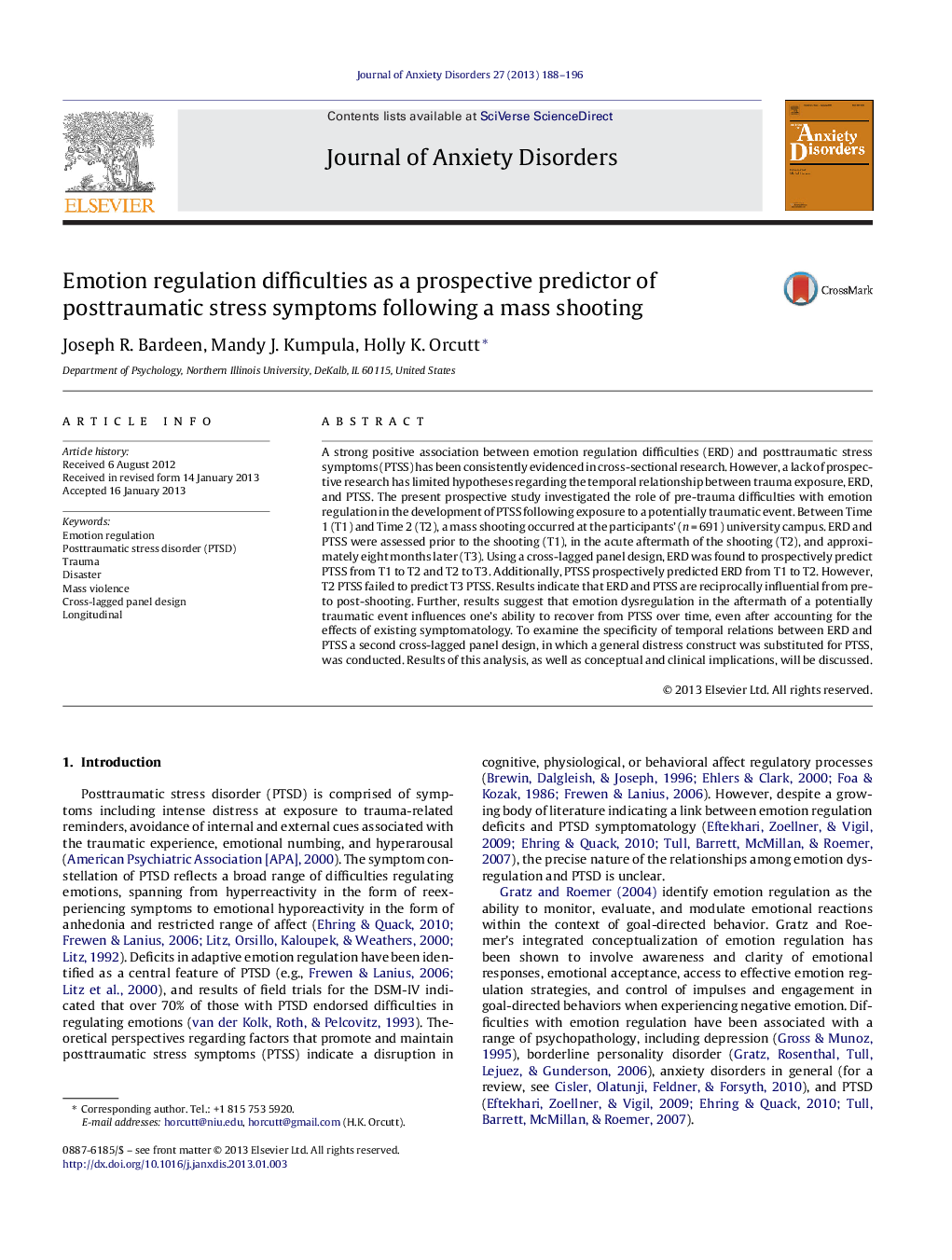| Article ID | Journal | Published Year | Pages | File Type |
|---|---|---|---|---|
| 909374 | Journal of Anxiety Disorders | 2013 | 9 Pages |
A strong positive association between emotion regulation difficulties (ERD) and posttraumatic stress symptoms (PTSS) has been consistently evidenced in cross-sectional research. However, a lack of prospective research has limited hypotheses regarding the temporal relationship between trauma exposure, ERD, and PTSS. The present prospective study investigated the role of pre-trauma difficulties with emotion regulation in the development of PTSS following exposure to a potentially traumatic event. Between Time 1 (T1) and Time 2 (T2), a mass shooting occurred at the participants’ (n = 691) university campus. ERD and PTSS were assessed prior to the shooting (T1), in the acute aftermath of the shooting (T2), and approximately eight months later (T3). Using a cross-lagged panel design, ERD was found to prospectively predict PTSS from T1 to T2 and T2 to T3. Additionally, PTSS prospectively predicted ERD from T1 to T2. However, T2 PTSS failed to predict T3 PTSS. Results indicate that ERD and PTSS are reciprocally influential from pre- to post-shooting. Further, results suggest that emotion dysregulation in the aftermath of a potentially traumatic event influences one's ability to recover from PTSS over time, even after accounting for the effects of existing symptomatology. To examine the specificity of temporal relations between ERD and PTSS a second cross-lagged panel design, in which a general distress construct was substituted for PTSS, was conducted. Results of this analysis, as well as conceptual and clinical implications, will be discussed.
► We examined pre-shooting emotion regulation difficulties (ERD) and posttraumatic stress symptoms (PTSS) in predicting post-shooting ERD and PTSS. ► ERD and PTSS were reciprocally influential from pre- to post-shooting. ► Higher post-shooting ERD predicted higher PTSS at eight months post-shooting. ► Post-shooting PTSS did not predict ERD at eight months post-shooting.
